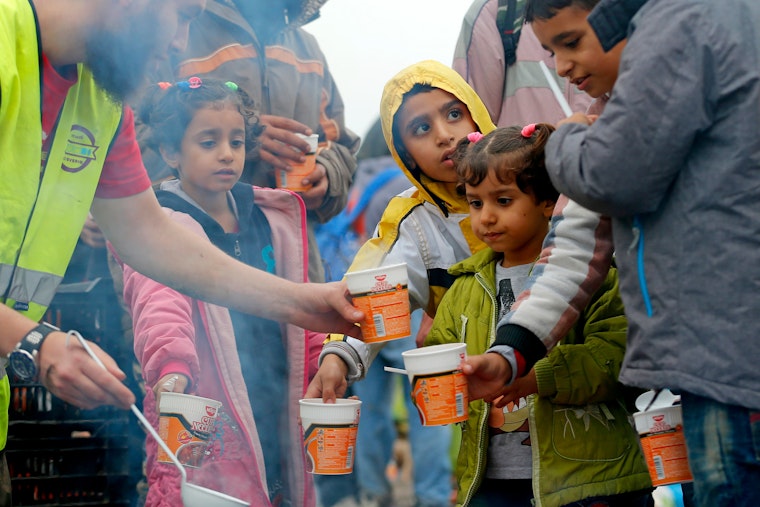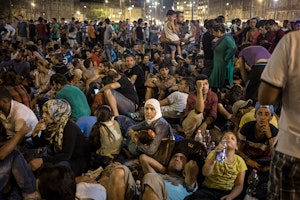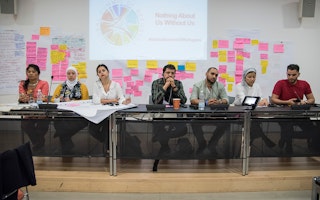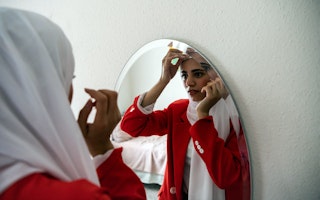Refugee Crisis Sparks Biggest Civic Response in Slovakia in Years
By Ján Orlovský

The August 27 discovery of the abandoned truck on an Austrian highway was a shock. Inside, 71 dead bodies brought the message home: they are here. The refugees. Not in Lampedusa or Lesbos, but here on a highway we usually take to cross into Austria to go shopping or head to our southern holiday destinations. How would Slovakia respond?
Online, there were hate-filled reactions to the van’s discovery: I’m glad this happened; too bad there were only 71 of them. But these loathsome comments were overwhelmed by the support of the Slovak people, which grew into the fastest civic response in the country in years.
One participant in this response was a young policy researcher named Martin Dubeci, who called a few people he knew would help him take action. They met at the Open Society offices in the Old Town of Bratislava. Three hours later, the document they had drawn up, Výzva k ľudskosti (Plea for Humanity), was posted on a Facebook page. A website was up and running by 9 p.m. that same day. The initiative got its own brand identity: two red hands joined in the shape of a heart.
As our message spread throughout Slovakia, we found ourselves shocked all over again—not shocked in horror this time, but rather from the outpouring of compassion triggered by our work. Our goal had been to demonstrate to ourselves as well as to the world that Slovakia is not a country of fear, but of compassion and solidarity. As the plea made its way around the country, it gathered signatures—3,000 in less than four days, an impressive amount for a small country like Slovakia.
Support from leading personalities and celebrities soon followed. Rock bands, actors, athletes, and the president himself posted photos branded with the heart-shaped logo online to draw people’s attention to the cause. And the media took notice: the initiative was covered on the front pages of two Slovak dailies, and on TV and radio. In the two weeks since that tragic incident occurred, 11,000 Slovaks have signed their names for humanity.
The plea had originally been designed to achieve two goals: to encourage immediate relief for refugees in neighboring Hungary and Austria, and to bring a reluctant government to the table with civil society to figure out how to collaborate. But after speaking with humanitarian groups, we learned that what the relief operations needed most urgently was better coordination of individual acts of kindness. Citizens were bringing provisions to the Keleti train station in Budapest and the asylum camp in Treiskirchen, Austria; tracking and organizing these crowds could help improve their response.
The website was thus redesigned to assist with this coordination. Those willing to help are now only a click away from organizations involved in the relief effort. Users can choose how they want to help: financially, materially, or in the form of volunteer hours. Both the website and Facebook page have become focal points not only for relief efforts, but also as places to fight the myths of migration.
The initiative has had one more effect: it has united many active organizations under a single brand to stand up to Slovakia’s far right, which is planning its second demonstration in the capital on September 12. Slovak police are predicting that a thousand protesters will show up, but we believe that our countrer-demonstration of peace and solidarity will attract even more. Yes, we can, and yes, we will.
The Open Society Foundation Bratislava is an indepedent affiliate of the Open Society Foundations.
Ján Orlovský is the director of the Open Society Foundation Bratislava.


